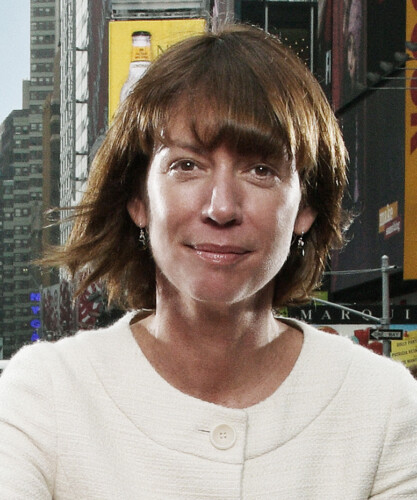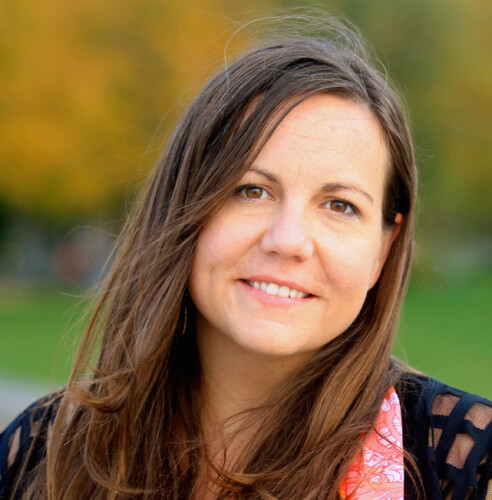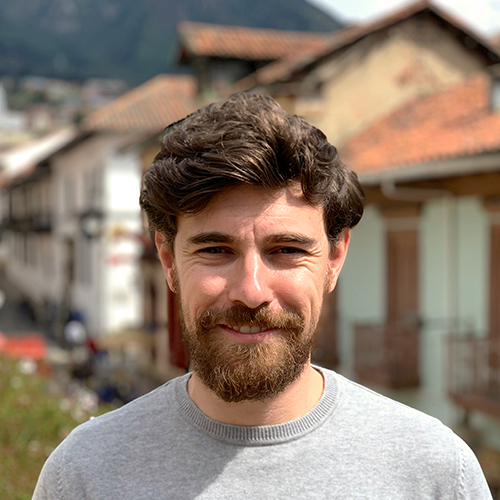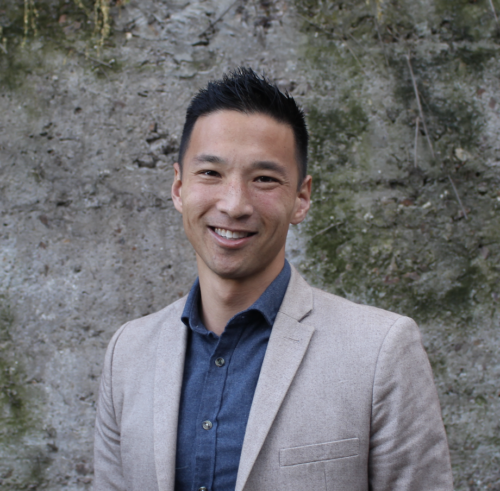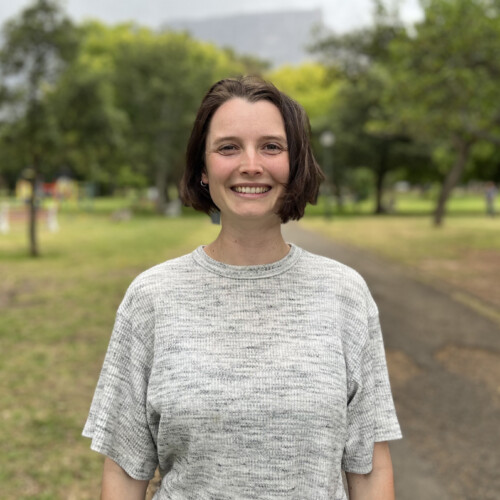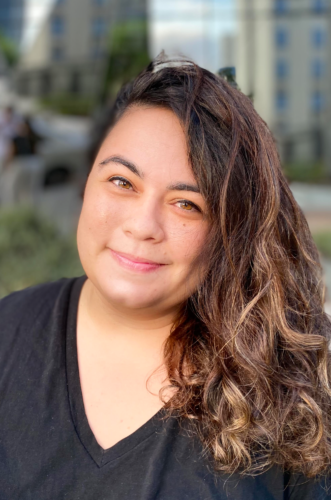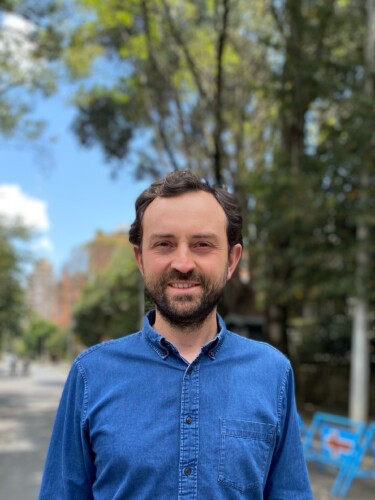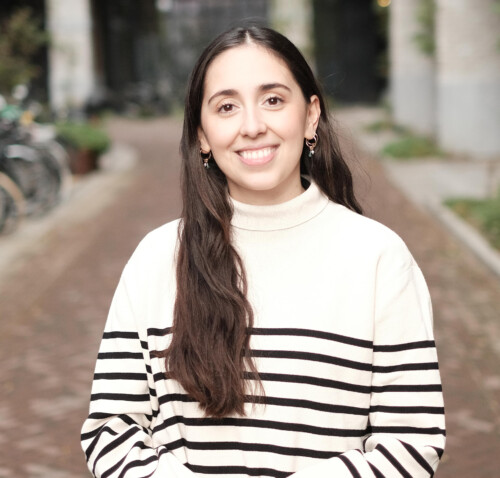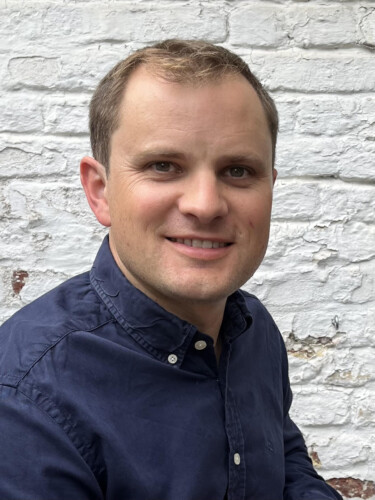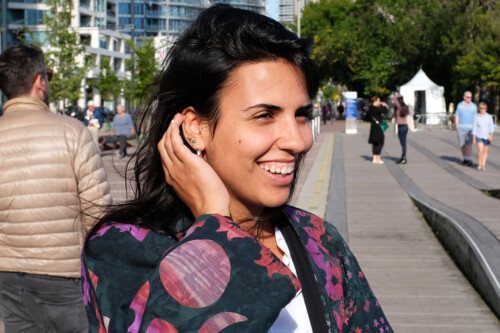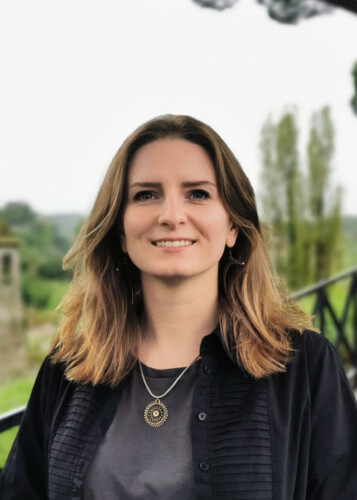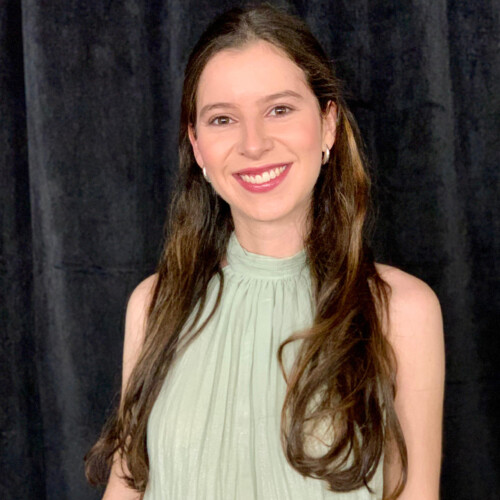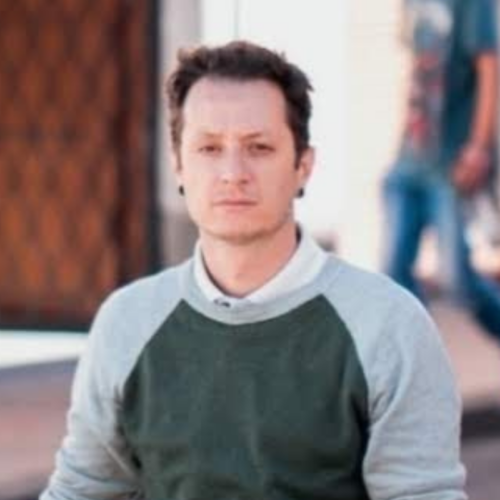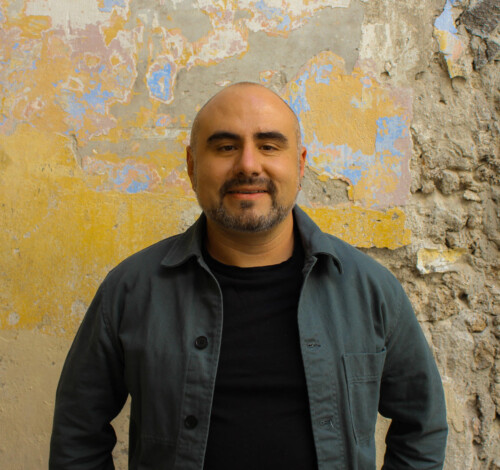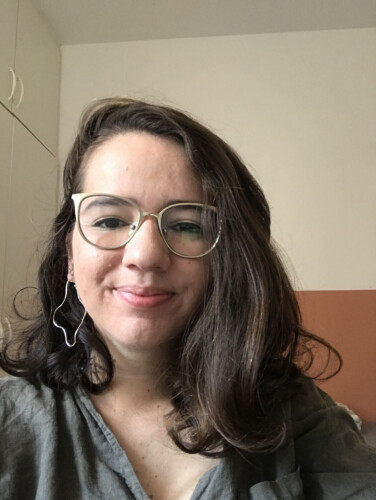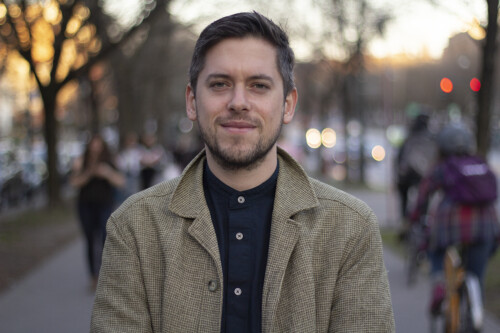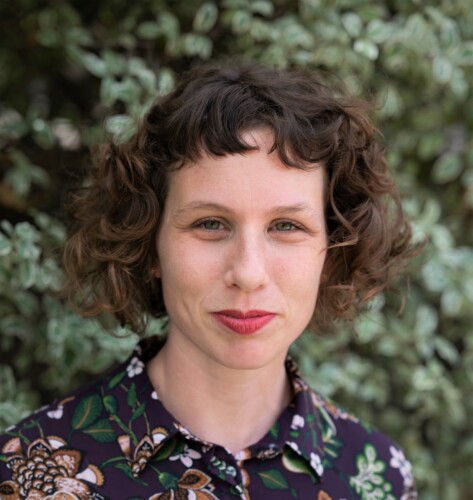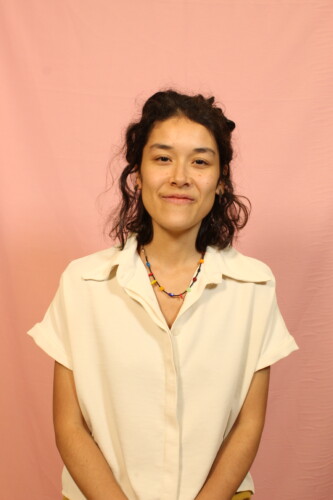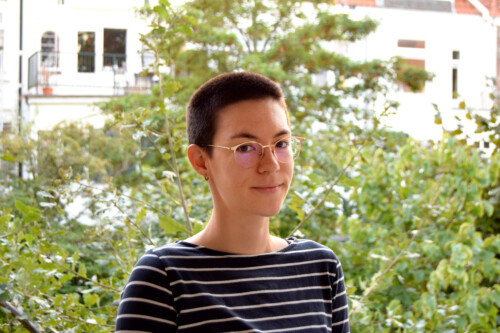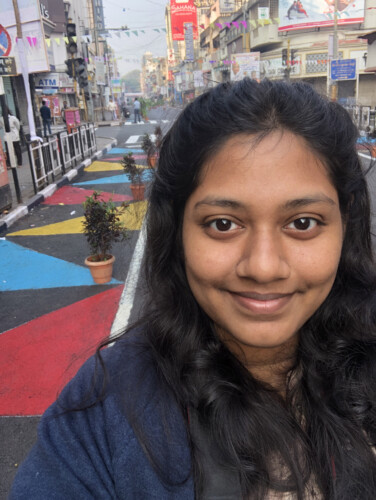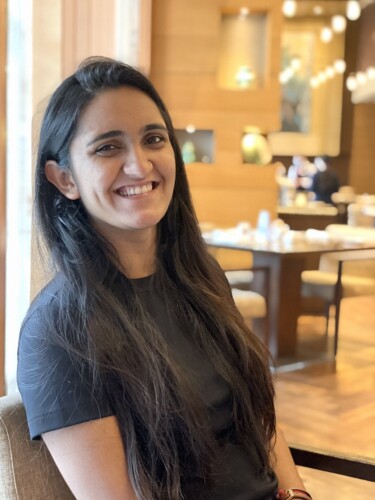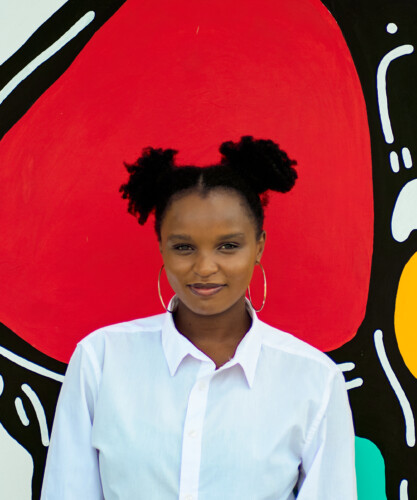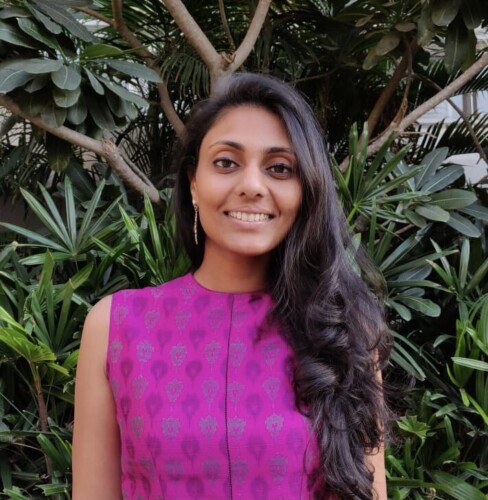-
![]()
Janette Sadik-Khan
Board Chair, Global Designing Cities Initiative, and Principal, Bloomberg Associates
Janette Sadik-Khan
Board Chair, Global Designing Cities Initiative, and Principal, Bloomberg Associates
Janette Sadik-Khan is one of the world’s foremost authorities on transportation and urban transformation. She served as New York City’s transportation commissioner from 2007 to 2013 under Mayor Michael Bloomberg, overseeing historic changes to the city’s streets. She oversaw the pedestrianization of Broadway in Times Square, built nearly 400 miles of bike lanes and established Citi Bike, the largest bike share system in North America, and she launched seven rapid bus lines across the city while setting in motion the creation of more than 70 plazas.
A founding principal with Bloomberg Associates, she works with mayors around the world to reimagine and redesign their cities. She chairs the National Association of Transportation Officials and the Global Designing Cities Initiative, implementing new, people-focused street design standards, which have been adopted in more than 150 cities across the United States and around the world
![]()
Skye Duncan
Executive Director
Skye Duncan
Executive Director
Skye Duncan is the Executive Director of the Global Designing Cities Initiative (GDCI), a leading global urban design initiative focused on transforming streets around the world and developing international best-practice street design principles for use in a wide variety of street typologies.
Skye and her team developed the award-winning Global Street Design Guide (GSDG), working with input from experts from 72 cities and 42 countries, now translated into 5 languages and endorsed by over 100 cities, regions, and organizations across the world. The GSDG, alongside its recent supplements, Designing Streets for Kids, and other technical resources share evidence-based global best practices and offer leaders, practitioners, and communities a new blueprint for reimagining and redesigning urban streets. Skye and her team build from these resources as they provide technical assistance and capacity building to cities on shaping safe, healthy, and inclusive street design and sustainable mobility options, in countries across the globe, including Colombia, Brazil, Rwanda, and Ecuador, to India, Italy, Albania, and Ethiopia.
Skye is an urban designer with 20 years of experience in architecture, urban design, and planning, and prior to GDCI, she spent seven years working as a Senior Urban Designer at the New York City Department of City Planning in their Office of the Chief Urban Designer. There, she offered her design expertise to help shape sites of all scales across the city and collaborated with multiple agencies and organizations to make New York City a more sustainable, resilient, livable and healthy city. Skye contributed to the NYC DOT Street Design Manual and helped develop much of the Planning Department’s innovative work relating to public health and the built environment. She was a contributing author to the Active Design Guidelines (2010) and led a team to produce the well-received 2013 publication Shaping the Sidewalk Experience. In 2019, Skye was recognized as one of TUMI’s Remarkable Women in Transportation.
Skye has worked professionally as an International Urban Design Consultant in Brazil, Colombia, Canada and New Zealand, and was an Adjunct Associate Professor at Columbia University in the Graduate School of Architecture, Planning and Preservation for seven years. She graduated as a Fulbright Scholar at Columbia in the Master of Science in Architecture and Urban Design program and has a Bachelor of Architecture with Honors from Victoria University of Wellington in New Zealand.
![]()
Abhimanyu Prakash
Associate Director of Strategy and Development
Abhimanyu Prakash
Associate Director of Strategy and Development
Abhimanyu Prakash joined GDCI in early 2015 and now is a Senior Program Manager working with cities on the street and public space design around the world through Bloomberg’s Initiative for Global Road Safety(BIGRS). He was part of the core team developing the award-winning Global Street Design Guide. He currently leads the projects and activities in the African and Asian cities under the BIGRS program.
As an urban designer and architect, Abhimanyu has gained global expertise in these fields through his past engagements in India, Germany and New York City. As an urban designer at Urban Matrix + MUD Workshop he has contributed to shape a finalist proposal for the federal Strong Cities Strong Communities Challenge for the City of Hartford and has also been involved in community engagement driven design work for the new Comprehensive Plan for the City of Easton. Various multi-scalar public and private projects across German and Indian contexts have helped him hone his skills across scales and gain a holistic approach to urban design.
In parallel, Abhimanyu is also involved at various non-profits such as Asia Initiatives and Dakshini Prayash where his is a board member as well. He applies his design, planning, and management skills at various educational and social development projects as a part of these organizations. As a passionate photographer and traveler he also enjoys maintaining an urban photo blog.
He graduated with the Lucille Smyser Prize from the Graduate School of Architecture, Planning, and Preservation and holds a Bachelor of Architecture from Sushant School of Art and Architecture, New Delhi where he was the recipient of various awards including the National Thesis Award awarded by the Indian Council for Architecture.
![]()
Brianna Williams
Director of Finance & Operations
Brianna Williams
Director of Finance & Operations
Brianna Williams is GDCI’s Director of Finance and Operations. With nearly twenty years of experience, she keeps GDCI running smoothly and provides solid financial oversight so the team can efficiently focus on transforming streets around the world.
Through her series of roles, she has managed multiple aspects of an organization, including human resources, finance, legal, and administrative. Prior to GDCI, she managed the finances and operations of a global organization with a mission focused on impact investing. Brianna also served as a Peace Corps volunteer in Burkina Faso, West Africa, has volunteered with multiple international organizations, and co-hosted a podcast, The Nonprofit Collective.
Brianna received her Master’s Degree in Nonprofit Management from Columbia University and her Bachelor’s in International Relations from Alliant International University in San Diego. She joined GDCI in 2019.
![]()
Fabrizio Prati
Director of Design & Research
Fabrizio Prati
Director of Design & Research
Fabrizio is the Global Designing Cities Initiative Director of Design. He oversees the street design work across the various programs and regions at GDCI.
Fabrizio joined the team in 2015, where he led projects and activities under the BIGRS program in Latin America. He is one of the core authors of the Global Street Design Guide and brings to the team 12+ years of experience as an urban designer and planner with a focus on safe and sustainable mobility, street and public space design.
Before joining GDCI he worked in two nationally and internationally recognized practices based in Paris, France where he addressed sustainability and mobility issues in transit-oriented developments and eco-districts in Europe, North Africa, Middle East and South-East Asia. He’s a graduate of the University of California, Berkeley Master of Urban Design and the Paris School of Planning (EUP) Master of City and Regional Planning.
Fabrizio is passionate about cities and curious about developing ways for making them more livable, inclusive, and sustainable. He is Italian, born and raised near Milan, and has lived in Paris, Montreal, Valencia, and San Francisco.
![]()
Paul Supawanich
Director of Programs
Paul Supawanich
Director of Programs
Paul Supawanich is the Director of Programs, helping oversee the organization’s efforts to promote safe, equitable, and sustainable public space and street designs around the world. He brings more than a decade of experience working with cities and transit agencies across North America, Europe, the Middle East, and Australia/New Zealand to improve transportation outcomes around livability, jobs access, and safety.
Prior to joining the Global Designing Cities Initiative, Paul worked as a national transportation consultant and then was on the executive team at Remix, a transportation technology company focused on empowering cities with technology to plan their transportation networks. There, he helped grow the company’s impact to over 300 cities worldwide. Paul also helped craft the NACTO Urban Street Design Guidelines, pioneering guidance to formalize street design across the United States, reflecting priorities in transit, biking, and walking. Paul most recently served as the transportation advisor to the Mayor of San Francisco, California.
Locally, his commitment to transportation is reflected through past volunteer efforts with both the San Francisco Pedestrian Safety Advisory Committee and San Francisco Bicycle Coalition Board. Paul received his Bachelors in Industrial Engineering from Georgia Tech and Masters Degree in City Planning and Transportation Engineering from UC Berkeley.
-
![]()
Alma Holm
Program Associate
Alma Holm
Program Associate
Alma is an architect and urban designer from South Africa, based in Cape Town. She joined GDCI in 2024 as a Program Associate to support the design team for the BICI program and is passionate about transforming streetscapes into pedestrian- and cycling-friendly spaces that prioritize movement, play, relaxation, and commerce, while fostering sustainability and equity.
Prior to GDCI, Alma worked at Terra+ Landscape Architects, where she contributed to the conceptual and technical design of several public projects for the City of Cape Town. Before that, she was part of the research and design team at NOAHH|Network Oriented Architects in Amsterdam, focusing on adaptive typologies to create resilient public spaces that respond to the challenges of climate change, urbanization, and social dynamics. She also has a keen interest in illustration, comics, and storytelling as tools to simplify and communicate complex ideas.
Alma holds a bachelor’s and master’s degree in architecture from Nelson Mandela University in Gqeberha, South Africa.
![]()
Beatriz Rodrigues
Program Manager
Beatriz Rodrigues
Program Manager
Beatriz Rodrigues, an architect and urban designer from Fortaleza, Brazil, joined GDCI to support the cities part of the Bloomberg Initiative for Global Road Safety (BIGRS). Beatriz holds a Bachelor’s degree in Architecture and Urbanism from the Federal University of Ceara (UFC) and a Master’s degree in Transportation Planning from the same University. Prior to joining GCI, she worked as the Urban Design Coordinator for Fortaleza, Recife, and Salvador, cities of the northeast of Brazil, as part of the Bloomberg Initiative for Global Road Safety (BIGRS), supporting the cities to implement urban mobility best practices aimed at reducing road deaths.
Previously, she served as a Transportation Planner in the City of Fortaleza developing projects for safer streets regarding vulnerable road users, as cycling infrastructure, low-speed zones, and tactical urbanism transformations, and managing bike share systems. She also has experience as an Urban Planning Professor.
![]()
Carlos Urrego
Senior Local Liaison, Colombia
Carlos Urrego
Senior Local Liaison, Colombia
Carlos Urrego joined GDCI in 2022 as Local Liaison in Colombia. With a strong background in urban design, active mobility, and public space, he is passionate about seeking ways to improve quality of life in cities by exploring innovative solutions for everyday urban challenges. An architect and urban development planner from the DPU at the Bartlett School of Planning, University College London, he brings more than ten years of experience on urban and mobility planning projects based on collective agency with cities, national agencies, international organizations, and NGOs.
Prior to joining the Global Designing Cities Initiative, Carlos worked as an international consultant for Vital Strategies, a leading global public health organization, where he was the urban design and public Space projects coordinator in Colombia for the Bloomberg Initiative for Global Road Safety. There, during five years, he contributed to strengthen technical and public policy capacities at the city and national levels on Road Safety with an urban design perspective for vulnerable users and sustainable modes of transport.
![]()
Christie Klima
Administrative Coordinator
Christie Klima
Administrative Coordinator
Christie joined GDCI as an Administrative Coordinator in 2022, providing cross-cutting administrative and project support to the GDCI team.
Prior to joining GDCI, Christie worked as a Program Assistant at the Lincoln Square Business Improvement District, where she acted as the logistical lead for day-to-day operations and communications, helping to make New York City’s Lincoln Square neighborhood cleaner, safer, and more beautiful. Christie has always been fascinated by the dynamic relationship between people and the built environment, and she strives to connect this passion with work that promotes sustainability, accessibility, and social equity in cities across the globe.
Christie received a Bachelor of Arts in Urban Studies and Sociology from Fordham University, where she was awarded the Trinity Financial Fellowship in Urban Studies. She is currently pursuing a Master of Urban Planning at Hunter College.
![]()
Daniela Abril Gutierrez
Handbook Associate
Daniela Abril Gutierrez
Handbook Associate
Daniela Abril Gutierrez is an architect and urban manager from Mexico, currently based in the Netherlands. She joined GDCI in 2025 as a Handbook Associate, where she supports the design and research team of the BICI program. Her international experience spans active mobility, feminist urbanism, urban governance, and social innovation—including community-led placemaking—through collaborations with both local and global non-profit organizations.
Before joining GDCI, Daniela served as Research and Development Manager at BYCS, an Amsterdam-based global non-profit dedicated to increasing cycling uptake through behavior change and a focus on “Human Infrastructure.” In this role, she led concept development and action research aimed at removing barriers to cycling for vulnerable groups such as women and children, translating insights into policy-relevant knowledge to support lasting local change.
Daniela holds a cum laude Bachelor’s degree in Architecture from Universidad de las Américas Puebla and a Master of Science in Urban Management and Development from the Institute for Housing and Urban Development Studies at Erasmus University Rotterdam. Her work is grounded in intersectional approaches, systems thinking, and pursuing just and sustainable urban transitions.
![]()
Diana Laboso
Local Liaison, Kenya
Diana Laboso
Local Liaison, Kenya
Diana is an accomplished transport planning professional with a strong civil engineering background and a Master’s degree in Transport Planning and Engineering from the University of Leeds. She specializes in designing efficient, safe, and sustainable transportation infrastructure. Her pioneering work focuses on innovative solutions for cycling infrastructure and urban street space upgrades in East Africa, aligning them with international standards. Diana is deeply committed to advocating for safe and inclusive street spaces continent-wide, with a vision for cities that prioritize the well-being and accessibility of all residents.
![]()
Ed Lancaster
Program Lead
Ed Lancaster
Program Lead
Ed Lancaster joined GDCI as Senior Program Manager in 2022 to lead the Bloomberg Initiative for Cycling Infrastructure (BICI). This exciting first-of-its-kind global cycling program will work with ten cities that want to realize ambitious projects creating safe, interconnected, and innovative cycling infrastructure. Ed had previously been EuroVelo Director at the European Cyclists’ Federation (ECF) where he managed the team coordinating EuroVelo, the European cycle route network. This network of 17 long-distance cycle routes crosses and connects the whole continent and, when realized, will contribute over €7 billion to the European economy. While there, he was also responsible for the ECF’s work on multimodality and cycle tourism and gained a wide range of experiences, including managing EU projects, organizing international conferences as well as working with different stakeholders in advocating for more and better cycling.
Prior to joining the ECF, Ed worked in various public authorities in the southeast of England as a Senior Planning Officer. He has a Master’s in Town Planning from the University of Westminster and is a member of the Royal Town Planning Institute (RTPI).
![]()
Eduarda Aun
Program Lead
Eduarda Aun
Program Lead
Eduarda Aun is an urban designer and the Program Lead for the Streets for Kids program at the Global Designing Cities Initiative. She works with cities around the world to reimagine streets as safer, more inclusive, and vibrant public spaces for children and their caregivers.
Since joining GDCI in 2019, Eduarda has led international collaborations focused on child-friendly street design, combining policy, capacity-building, and on-the-ground implementation.
Previously, she worked at the New York City Department of Transportation, where she contributed to the third edition of the NYC Street Design Manual. In Brazil, Eduarda co-founded a nonprofit advocating for public space in her hometown of Brasília. She also created espacopubli.co, an interactive platform designed to amplify and connect grassroots initiatives reclaiming public spaces in the city.She holds a Master’s degree in Design and Urban Ecologies from Parsons School of Design and a Bachelor’s degree in Architecture and Urbanism from the Universidade de Brasília (UnB). In 2017, she was awarded the Women’s Transportation Seminar (WTS) Transit Policy Innovator Scholarship.
![]()
Eduardo Pompeo Martins
Design Lead
Eduardo Pompeo Martins
Design Lead
Eduardo joined the Global Designing Cities Initiative as a program manager in 2017 to contribute to GDCI’s efforts in promoting safe, equitable, and sustainable cities through better street design. As part of the Bloomberg Initiative for Global Road Safety (BIGRS), he provides technical assistance to multiple cities in South America in applying the design principles from the Global Street Design Guide. Prior to joining GDCI, Eduardo worked at SP-Urbanismo, an agency within São Paulo City Government, in Brazil, where he was involved in projects and programs related to urban mobility and public spaces.
Eduardo received a degree in Architecture and Urbanism from University of São Paulo – FAUUSP. He also studied for one year under an exchange program at ETS de Arquitectura de Madrid. During his studies in Brazil, he joined Fluvial Metropolis Research Group and collaborated on the development of studies for a metropolitan waterway ring in São Paulo. His final thesis was based on these studies and was selected to represent FAUUSP at Archiprix International competition.
![]()
Eglė Pilipavičiūtė
Handbook Associate
Eglė Pilipavičiūtė
Handbook Associate
Eglė Pilipavičiūtė is an architect and urban planner from Lithuania with international study and work experience. She joined GDCI in 2025 as a Handbook Associate to support the design team for the BICI program and is passionate about urban regeneration, streetscapes, and public space. She believes that inclusive, accessible, and livable streets are a basic urban human right for a healthy, dignified, and independent life.
Eglė’s professional interest and work experience involve both: top-down and bottom-up planning and research. Before joining GDCI, Eglė worked as a planner at WSP Finland on multidisciplinary projects for new area developments in Lappeenranta, Porvoo, Kangasala, and Espoo cities. She was also involved in urban regeneration projects through community mapping with Interazioni Urbane in Rome, and interdisciplinary education on public space with City Space Architecture in Bologna, Italy. Eglė especially values cultural heritage and has worked as an architect at Erdvės Norma with restoration and reconstruction projects of listed heritage objects in Lithuania.
Eglė obtained a Bachelor of Architecture degree at Kaunas University of Technology in Lithuania with an award-winning thesis on post-industrial site conversion and integration into the city’s structure. She also holds a master’s degree in a multidisciplinary Urban Studies and Planning program at Aalto University in Finland.
![]()
Estefanía Mejia Tamayo
Program Associate
Estefanía Mejia Tamayo
Program Associate
Estefanía is a civil engineer and architect from Colombia, with focus on urban development, sustainable mobility, and urban planning. Her academic training allows her to bring a multidisciplinary approach to the structuring of sustainable transport systems, promoting active transportation, and analyzing urban environments.
Before joining GDCI, she contributed to impactful urban projects. At the District Secretariat of Mobility in Bogotá, Estefanía was part of the technical team for the Barrios Vitales strategy, her role included data analysis, community engagement, follow-up and monitoring of tactical urbanism initiatives. In addition to her work in the public sector, Estefanía volunteered at Fundación Despacio and worked as a mobility consultant in the private sector, participating in projects for multilateral entities, focusing on the development of urban environment diagnostics, stakeholder engagement strategies, and the preparation of recommendations aimed at improving walkability and cycling infrastructure. She contributed to the creation of guidelines for safer and more accessible mobility solutions, focusing on vulnerable users.
Estefanía is passionate about continuous learning and remains committed to improving urban environments as part of the BICI Team at GDCI.
![]()
Fernando De La Torre
Local Liaison, Ecuador
Fernando De La Torre
Local Liaison, Ecuador
Fernando De La Torre joined GDCI in 2022 as the Ecuador Local Liaison, supporting Bloomberg Initiative for Global Road Safety (BIGRS) efforts in the cities of Quito and Guayaquil. He is an urban designer, dedicated cyclist and activist, and brings over 26 years of urban planning, design, technical, and research experience.
Prior to his work at GDCI, Fernando was the Metropolitan Director of Modes of Sustainable Transport in Quito, where he led the team in charge of developing policies and plans for sustainable mobility, urban cycling infrastructure, and pedestrian networks for the city. Under his management, the city saw a 600% increase in cycling activity across Quito.
![]()
Giovanni Zayas
Program Manager
Giovanni Zayas
Program Manager
Giovanni joined GDCI in 2023 as a Program Manager for the BICI program in the Americas. He has over 12 years of experience planning, designing, and implementing active mobility projects and campaigns in Mexico and Latin America. He is passionate about streets and cities and how people work, play, move, and coexist within them.
Before joining GDCI, Giovanni worked as a World Bank consultant, collaborating with multidisciplinary teams across Latin America, conceptualizing and planning cycling mobility projects. Moreover, he also spearheaded a knowledge exchange initiative (PLAMOBI) and a regional community of practice (Latin America Cycles).
Giovanni has been an active mobility consultant for different organizations in the private and public sectors. He has worked with various civil society groups to launch campaigns that advocate for safer streets for everyone. In 2015, he co-founded a Sunday open streets program that allows thousands of users to enjoy cultural and recreational activities on a car-free road network in the Puebla metropolitan area.
In 2018 Giovanni received a Chevening Award to study an Urban Regeneration MSc at University College London. He holds a BSc in International Business through a double degree program with Universidad de las Américas, Puebla, and Northeastern University in Boston, USA.
![]()
Hannah Mendes
Local Liaison, Brazil
Hannah Mendes
Local Liaison, Brazil
Hannah Mendes joined GDCI in 2024 to support cities in Brazil as part of the Bloomberg Initiative for Global Road Safety (BIGRS). She holds a Bachelor’s degree in Architecture and Urbanism from the Federal University of Ceará (UFC). Prior to joining GDCI, Hannah contributed as a consultant to the development of some of GDCI’s upcoming publications and workshop tools. Before that, she worked for five years with the municipal government of the city of Fortaleza, Brazil, both as city staff and as BIGRS’s embedded staff in Fortaleza.
As part of the team that initiated a significant transformation in the city’s urban mobility scenario and recognizing the profound impact of street transformations on cities, Hannah gained extensive experience in urban design, active mobility, and road safety projects and implementations. She also served as one of the project managers of Fortaleza’s Innovation Lab, where she coordinated international partnerships formed by the lab and oversaw projects related to sustainability, urban design, and air quality, among others. Additionally, Hannah contributed as a consultant for the design of road safety reports in cities such as Fortaleza, Salvador, Campinas, and Quito.
![]()
Hayrettin Günç
Senior Program Manager
Hayrettin Günç
Senior Program Manager
Hayrettin Günç joined GDCI as a Program Manager in 2019.
Hayrettin is an architect and urban designer from Istanbul. He received a Master of Architecture in Urban Design from the Harvard Graduate School of Design and has since been working towards the intersection of urban design, placemaking and data visualization. Prior to joining GDCI, he practiced as an urban designer and project manager at Team Better Block, where his work focused on the exploration of short-term local events to temporarily improve the physical and economic conditions of neighborhood-scale urban areas. In addition to his work at Team Better Block, Hayrettin gained research experience working at the Civic Data Design Lab at MIT, where his collaborative work highlighted urban phenomena through data visualization and interactive design. During his time at the lab, he managed projects that focused on the investigation of human behavior in public spaces.
Before coming to the U.S., Hayrettin co-founded Herkes İçin Mimarlık (Architecture for All), an Istanbul-based non-profit which identifies and initiates projects that address societal problems in Turkey and come up with creative ways to serve the public using design and architecture.
![]()
Hila Bar Ner
Program Manager
Hila Bar Ner
Program Manager
Hila Bar Ner joined GDCI in 2022 as a Program Associate to work with the Streets for Kids (SfK) Leadership Accelerator.
Prior to joining GDCI, Hila worked for six years as an urban planner and project manager at Gavrieli-Segal, a Tel Aviv based planning firm, supporting cities in developing people-focused, sustainable, and healthy urban environments. In her role she analyzed the future needs of communities, performed spatial analysis, conducted policy and regulation surveys, and served as the direct point of contact for teams and clients. Among others, she was the project manager for developing Israel’s national planning and design guidelines for child-friendly cities under the Ministry of Education as part of Bernard van Leer’s global Urban95 initiative. At the same time, she was also pursuing her academic interests, as a teaching assistant and a researcher at the Reichman University school of sustainability, where she focused on the formation of urban sustainability policy.
Before that, Hila was the project coordinator at the Urban Clinic, an academic unit focused on nurturing urban leadership and local knowledge for just and inclusive cities. Hila produced two publications on Placemaking and Public Participation and she was the editor of numerous articles on innovative interventions in public spaces for Street Language, a local online publication that explores urban planning.
She has a B.A. in Political Science and the “Amirim” humanities program for outstanding students, and an M.A. in Geography with a specialization in Urban Planning from the Hebrew University. Her dissertation examined the impact of governmental, municipal, and civil society organizations on placemaking interventions in Israel.
![]()
Ignacio Perotti
Local Liaison, Argentina
Ignacio Perotti
Local Liaison, Argentina
Ignacio joined the Global Designing Cities Initiative (GDCI) as a Local Liaison in Argentina. As part of the Bloomberg Initiative for Global Road Safety (BIGRS), he helps promote safe, equitable, and sustainable cities by designing human-scale streets that prioritize people.
Before joining GDCI, Ignacio spent over 10 years working as an urban specialist in both the public and private sectors. In the public sector, he held roles with the City Government of Buenos Aires and the Municipality of Bahía Blanca. In the private sector, he was the Founder and Director of UHASS Architects. He also coordinated socio-urban transformation projects in collaboration with specialists from the World Bank and the Inter-American Development Bank while managing international consultancies such as Gehl Architects and Harvard GSD.
Ignacio holds a degree in Architecture and Urban Planning from the University of Buenos Aires. He continued his studies in Barcelona, earning an MBArch in Urbanism from the Polytechnic University of Catalonia. More recently, he participated in the Urban95 Academy at the London School of Economics and Political Science (LSE), a fully funded executive education program designed for municipal leaders worldwide to develop strategies for improving cities for babies, toddlers, and caregivers. Additionally, he received a full scholarship to take part in the London Residence Week, where he engaged with municipal officials from around the world.
![]()
Iván de la Lanza
Americas Regional Lead
Iván de la Lanza
Americas Regional Lead
Iván is a Senior Program Manager and Regional Lead for Latin America, working with cities to provide leadership and direction to the country work within the Americas, as part of the Bloomberg Initiative for Global Road Safety (BIGRS) program, as well as offer guidance and oversight to other GDCI programs.
Among multidisciplinary teams, he has collaborated and developed various mobility projects from governmental and non-governmental areas over the past 15 years, providing technical support, management, and building local capacity in cities. He recently was the Active Mobility Manager in the Cities Program of WRI Mexico, and prior to this, he was the Director of Culture Design and Cycling Infrastructure in the Ministry of Environment of the Mexico City Government. A pedestrian and cyclist who thinks that we literally have to walk and cycle to more equal cities.
![]()
Jaime Flores Diosdado
Program Associate
Jaime Flores Diosdado
Program Associate
Jaime joined GDCI in 2025 as Program Associate for the Bloomberg Initiative for Global Road Safety (BIGRS). He provides technical assistance to cities across Latin America, promoting safe, equitable, and sustainable streets for all.
Before joining GDCI, he worked as a mobility and infrastructure consultant with the BIGRS embedded staff in Mexico City, supporting best-practice street design interventions, workshops, and technical handbooks. He also served as an urban and graphic design consultant for ITDP Mexico, as well as for FONATUR and SEDATU, two national government agencies focused on tourism and urban development, respectively. In the private sector, Jaime has collaborated with architecture firms in Mexico City on mixed-use developments, housing projects, and master plans.
He holds a bachelor’s degree in Architecture from the Autonomous University of Coahuila with an academic exchange at the National Autonomous University of Mexico (UNAM). He also earned a certificate in Metropolitan Landscape from Tecnológico de Monterrey in partnership with the Architectural Association in London. His work focuses on promoting pedestrian rights, reconnecting communities, ensuring equitable access to quality public transportation, and advancing cycling mobility to improve public health in cities.
![]()
Jashwanth Tej Kasala
Program Manager
Jashwanth Tej Kasala
Program Manager
Jashwanth Tej Kasala joined GDCI as the India Program Manager in 2022, and is based out of Mumbai. As an architect and urban designer, Jashwanth has over eight years of experience in Master planning projects supporting The World Bank, ADB and other donor, multi- and bi-lateral donor agencies. He previously held positions as Senior Program Associate- Transport with WRI India, for the ‘Nurturing Neighbourhoods Challenge’ in support with Ministry of housing and urban affairs Indian (MoHUA) and Bernard van Leer Foundation (BvLF).
Prior this he worked with consulting firms like Surbana Jurong, IPE Global and Government entities like Delhi Urban arts commission (DUAC), where he has delivered master plans, framework plans, master plan reports, development control guidelines, public realm, and streetscape studies, such as Pedestrianisation of Connaught Place and Khan Market. He has also worked on various smart cities such as Amaravati Smart City, Pimpri Chinchwad Smart City, Shillong Smart City and New Town Kolkata Smart City.
Jashwanth holds a Master’s in Urban design from School of planning and Architecture Delhi, and a Bachelor’s in architecture from School of planning and Architecture, JNTU, Hyderabad. He was also selected for the Young Architects and Urban Designers Program 2020-21.
![]()
José Guzmán
Program Associate
José Guzmán
Program Associate
José Manuel joined GDCI in 2024 as a Program Associate to support the Street for Kids (SfK) program. He is an urban planner from Venezuela, currently living in Chile.
Prior to joining GDCI, he contributed as a consultant to the development of GDCI’s forthcoming handbooks How to Engage Kids in Street Design and How to Evaluate Street Transformations Near Schools – supplements to the Designing Street for Kids Guide (DSfK) that focus on evaluating and implementing street transformation that cater to the needs and wishes of children and their caregivers. He was also part of the internationally recognized NGO Ciudad Emergente, working as Tactical Urbanism Coordinator, developing and implementing projects both in Chile and abroad, bringing more than +6 years of experience transforming streets.
José Manuel holds a bachelor’s degree in Urbanism from the Universidad Simón Bolívar in Caracas, Venezuela. He is currently pursuing a Master’s degree in Urban Planning from the Pontificia Universidad Católica de Chile.
![]()
Julia Vannucchi
Graphics Associate
Julia Vannucchi
Graphics Associate
Julia Guibu Vannucchi joined GDCI in 2024 as a Graphics Associate, contributing to the Design and Research team after spending nine months as a consultant. She holds a bachelor’s degree in Architecture and Urbanism from the University of São Paulo and has specialized in graphic design and illustration with experience and passion for projects related to architecture, the urban environment, and sustainability. She has contributed to a report on pedestrian mobility in Brazil from Projeto Como Anda, publications supported by Urban95 focused on designing cities for early childhood, and initiatives aimed at preserving the memory of traditional communities in Brazil.
As a co-founder of the design studio Bicho Coletivo, in 2022 she contributed to the Recife Street Design Manual in collaboration with GDCI and the city of Recife, adapting concepts from the Global Street Design Guide to the local context.
![]()
Jullietta Jung
Program Manager
Jullietta Jung
Program Manager
Jullietta Jung joined GDCI in 2023, based in Sydney, Australia.
Jullietta is a sustainable mobility professional with over a decade of experience working with governments in Australia to deliver high-impact active transport projects and programs and strategic investment decisions aimed at urban transformation to improve the liveability of cities.
Jullietta sits on the board of the Australian not-for-profit organization Better Streets where she works on national and state issues with the community to improve streets and the environment.
Jullietta has a degree in Software Engineering from the University of Sydney, Australia, and a Master’s in Urban Development from RMIT, Australia. Her journey to sustainable transport was spearheaded by her social movement in Sydney that encouraged people of diverse backgrounds to adopt cycling as a mode of transport.
![]()
Kim Lua
Asia and Africa Regional Lead
Kim Lua
Asia and Africa Regional Lead
Kim Beng Lua is the Asia and Africa Regional Lead at the Global Designing Cities Initiative (GDCI). With extensive experience in promoting safe, equitable, and sustainable mobility, as well as sustainable urban development in private, public, and civil society, he has worked in the United States, China, Vietnam, Thailand, New Zealand, India, Malaysia, and Kenya. His roles involve supporting the implementation of city-based sustainable transportation projects and developing national guidelines on sustainable transportation. He has also contributed to major projects and policies that improve road safety and urban resilience globally. Kim holds a Master’s Degree in Urban and Regional Planning from the University of Michigan.
![]()
Maria Clara Trujillo
Design Lead
Maria Clara Trujillo
Design Lead
Maria Clara joined GDCI as Senior Program Manager in 2023 to lead the Bloomberg Initiative for Cycling Infrastructure (BICI) design and technical efforts. She is a Colombian urban designer with a passion for sustainable mobility and more than eight years of experience planning, designing, and implementing pedestrian and cycle infrastructure projects in the public sector. Maria is inspired by initiatives that move towards a more inclusive view of transport and recognize walking and cycling as a social practice through an accessibility, well-being, and gender perspective.
Before joining GDCI, Maria was part of several transformative projects in Medellin. She worked as Project Leader of a strategic 17km structuring cycling corridor in Medellin at the Agency for the Landscape and Heritage Management. Prior to this, she was a lead designer in the active mobility team at the Metropolitan Agency of Medellin. A team with a leading role in integrating the bicycle into the Metropolitan Mass Transit System and expanding the network of protected cycle lanes and walkable streets into ten municipalities. Additionally, she collaborated in the design and development of ‘Parques del Río Medellin’, a flagship urban regeneration project in the city.
Maria holds a Bachelor’s degree in Architecture from the Universidad Pontificia Bolivariana in Medellin and a Master’s degree in Transport and City Planning from the Bartlett School of Planning, University College London. Her dissertation explored children’s independent mobility through a child-oriented perspective on walking, playing, and socializing.
![]()
Marina Višić
Program Associate
Marina Višić
Program Associate
Marina Višić joined GDCI in 2024 to support the Bloomberg Initiative for Cycling Infrastructure (BICI) program, which aims to accelerate the development of safe, connected, and innovative cycling infrastructure in cities. As an urban designer, Marina integrates sustainable practices into her work, with a focus on designing adaptable environments that prioritize biodiversity and ecosystem services.
Before joining GDCI, Marina worked as an urban/landscape designer at Felixx Landscape Architects & Planners in Rotterdam, where she developed strategies to address climate change through nature-based solutions. Her work spanned projects of various scales, integrating biodiversity and ecosystem services to enhance resilience in urban environments.
Marina holds a European Post-Master’s degree in Urbanism from TU Delft and a Master’s in Architecture with a specialization in Urbanism from the University of Belgrade. She has gained valuable international experience working on urban planning and development projects across Europe, including roles at MIR architecten in Amsterdam and UNICITI, where she contributed to flood-resilient urban design and sustainable development research initiatives.
![]()
Najwa Doughman
Senior Program Manager
Najwa Doughman
Senior Program Manager
Najwa is an urban planner, designer and architect. She is a Program Manager at GDCI, and manages the Bloomberg Initiative for Global Road Safety (BIGRS) efforts in Quito and Guayaquil, Ecuador, and the development of the How-to handbooks – supplements to the Global Street Design Guide that focus on evaluating and implementing street transformation projects.
Najwa brings over 12 years of experience in conceptualizing, developing and implementing a diverse range of architecture, urban design and transportation planning projects in NYC and the Middle East, and worked most recently at Arup in New York City.
Najwa received her Master of Urban Planning degree from New York University where she was awarded the Wagner Public Service Scholarship and selected as a University Transportation Research Graduate Scholar. She holds a Bachelor’s Degree in Architecture from the
University of Virginia. ![]()
Naveenaa Munuswamy
Program Associate
Naveenaa Munuswamy
Program Associate
Naveenaa joined GDCI in 2022 as a Program Associate to support the Bloomberg Initiative for Global Road Safety (BIGRS) efforts in Asia and is based in Chennai. She has 5+ years of experience creating and inspiring walkable, bike-able, and safer streets by design.
Having grown up in India, streets are an essential part of her life. She believes great streets have the power to transform cities. As an Architect-Urban designer with an intention to improve people’s quality of urban life, she spent her formative years as a consultant redesigning the streets of her city. During this time, She worked closely with the Greater Chennai Corporation (GCC) in implementing the first elevated cycle track in the city and designed multiple streets in T-Nagar for the ‘Pedestrian Street Project’ under the Smart City Mission (Government of India). Working closely with engineers from GCC in designing and implementing streets one curb at a time cemented her interest in the subject.
Before joining GDCI, Naveenaa worked for the Institute for Transportation and Development Policy (ITDP) for 4.5 years, where she was a Senior Associate – Healthy Streets and Inclusive Compact Cities. As part of her work at ITDP, she guided National, State, and City governments, providing them with technical assistance on sustainable and equitable urban mobility. Her work included transforming congested roads into vibrant streets with space for all users, helping cities implement bold reforms, creating NMT master plans for cities, and building support for high-quality, sustainable mass transit, with a keen interest in research. Her love for streets took her to experience the streets of Pune, where she spent the last two years working with different agencies in the city to prioritize sustainable mobility.
Naveenaa holds a Bachelor’s degree in Architecture from Anna University.
![]()
Pratiksha Surpuriya
Program Manager
Pratiksha Surpuriya
Program Manager
Pratiksha is an architect-urban planner who joined GDCI in 2022 to support the BIGRS efforts in Asia to transform streets and public areas into more safe and equitable spaces in cities. With a focus on sustainable mobility, she takes a keen interest in working on design-led policies and tools promoting non-motorized transport, public transport, and inclusive planning.
Prior to joining GDCI, Pratiksha worked with the urban development arm of the Karnataka Government. As a part of her work there, she developed Area Parking Plans for Bangalore that aid the shift towards sustainable transport and built a toolkit for pedestrianization, largely to assist tier-two cities in taking up such initiatives. She has also worked with Godrej Properties Limited, a leading real-estate developer, as an urban planner to design township masterplans for Pune. She brings with her the experience of working on designs, policies, and plans for cities, collaborating with various stakeholders.
Pratiksha has graduated with the Academic Excellence Award from CEPT University, Ahmedabad, with a Master’s in Urban and Regional Planning, and also holds a Bachelor of Architecture degree from the University of Pune.
![]()
Rebecca Warner
Communications Manager
Rebecca Warner
Communications Manager
Rebecca joined GDCI as the BICI Communications Manager in 2024 to lead and manage external communications for BICI. Prior to joining GDCI, Rebecca managed communications for a number of global nongovernmental organizations, with a specific focus on visual and digital communications. She has previously worked as a strategic communications consultant, designing communications strategies, implementation guides, and other resources for organizations. Rebecca has a particular interest in art and the power of aesthetics in the design of urban environments.
Rebecca earned a Bachelor of Arts in Political Science from St. Mary’s College of Maryland.
![]()
Regatu Solomon
Program Manager
Regatu Solomon
Program Manager
Regatu Solomon, a Civil Engineer with a master’s degree in Road and Transportation Engineering, is a dedicated professional with a strong focus on urban mobility and road safety. She is currently serving the Bloomberg Initiative for Cycling Infrastructure in African Cities through her position at the Global Designing Cities Initiative (GDCI). Prior to this, she worked as an Active Mobility Senior Associate at ITDP Africa, where she led and contributed to various projects, including developing cycle network plans for Addis Ababa and Kampala, implementing Addis Ababa’s NMT strategy, and conducting capacity-building programs for government planners and engineers. Being iRAP accredited enabled her to assess streets covering around 450 kilometers in Addis Ababa, in collaboration with the World Bank Group. She has also served as NMT team leader at the Addis Ababa City Transport Bureau in a prior role.
Furthermore, Regatu also serves as the African Regional Leader in the Global Youth Coalition for Road Safety, demonstrating her dedication to advocating for safer roads and mobility. Over the course of her career spanning more than a decade, she has gained valuable experience in various roles, enriching her expertise and broadening her perspective on urban development.
![]()
Renan Carioca
Research Manager
Renan Carioca
Research Manager
Renan Carioca, a transportation engineer from Fortaleza, Brazil, joined GDCI to support the cities as part of the Design team. Renan holds a Bachelor’s degree in Civil Engineering from the Federal University of Ceara (UFC) and a Master’s in Transportation Planning from the same University.
Before joining as a GDCI staff member, he collaborated with the organization on a research project that focused on the interplay between street design and air quality, helping create a better understanding of how street design measures can promote cleaner air and also how to assess impacts. He also worked with several cities in Latin America, supporting the monitoring of indicators for quality of service in public transportation.
Previously, he served as a Transportation Planner in the City of Fortaleza as part of the sustainable mobility team, working mainly with projects related to public transportation (with the city’s transit agency) and road safety (with the city’s traffic agency and in coordination with partners).
![]()
Renata Carvalho
Design Manager
Renata Carvalho
Design Manager
Renata Carvalho is an architect, urbanist and transport planner from Brazil, based in London, and interested in designing better streets for people. Prior to joining GDCI in 2024 as Design Manager, Renata has worked in designing, drafting policies, and retrofitting streets to improve infrastructure for walking, cycling, and transit access, with a focus in African cities. As a consultant, she also supported the Bloomberg Initiative for Cycling Infrastructure in Addis Ababa, Mombasa, and Quelimane for six months.
At the Institute for Transportation and Development Policy, she designed the street templates for the Ethiopia Urban Street Design Manual, co-led a community of practice for walking and cycling, and was the point person for the five African cities participating in Cycling cities, a global campaign for better cycling infrastructure. While in Brazil, she co-led architecture and urbanism firm Toca Arquitetura, where she worked on residential, retail, and streetscape designs, renovations and construction.
Renata holds a bachelor degree from Universidade Federal de Vicosa, a lato sensu specialisation in Sustainability of the Built Environment from Universidade Federal de Minas Gerais, and an MSc in Transport and City Planning from University College London, as a Chevening scholar (2019-20). She has also contributed as a volunteer partnership development officer and outreach and communications director at the Oxford Urbanists think tank.
![]()
Solomon Green-Eames
Program Manager
Solomon Green-Eames
Program Manager
Solomon joined GDCI in 2019 to work on the forthcoming Safe Speeds publications as well as contribute to the BIGRS initiatives worldwide.
Solomon is an urban planner and designer passionate about realizing the potentials of streets to bring positive transformative change to cities and society. From the United Kingdom originally, Solomon received his Masters in Urban Planning from Harvard Graduate School of Design and has previously worked as a transportation planner in the UK and San Francisco.
He has conducted research on the future of mobility in Los Angeles in collaboration with the City Form Lab at MIT as well as acting as the lead researcher on the 2019 publication “Future Streets: London” which explored how emerging mobility technologies will change the way in which streets are designed.
![]()
Teresia Muthoni
Administrative Coordinator
Teresia Muthoni
Administrative Coordinator
Teresia joined GDCI in 2025 as an Administrative Coordinator for Asia, Africa, and Oceania.
Teresia brings to her work a lovely blend of global perspective and local awareness. She studied social sciences at ALU* Glasgow Caledonian University and has a passion for developing systems that serve people. She has experience in various fields, such as international development, youth empowerment, and tech consulting, where she has concentrated on organising multi-stakeholder initiatives, optimising operations, and creating cooperative processes that support team success.
Teresia is thrilled to help the GDCI team in the Eastern Hemisphere fulfil its mission of creating safer, more inclusive, and people-centered cities. She is driven by empathy, flexibility, and a strong dedication to continuous learning to support day-to-day program operations across the different time zones.
![]()
Uditi Agarwal
Program Manager
Uditi Agarwal
Program Manager
Uditi is an Architect and Urbanist, with eight years of urban development experience in India across policy, planning, and design. She specializes in public space upgradation, inclusive urban revitalization, and streetscape design—all from the lens of climate change, culture, and accessibility.
Uditi joined GDCI as the India Program Manager in 2021, and she is based in New Delhi. In this role, she oversees the BIGRS work in India, managing the various interventions for safer streets and safer mobility. Prior to this, she was working with the National Institute of Urban Affairs in India, the technical body of the Ministry of Housing and Urban Affairs, Government of India, where she developed some of the recent urban development programs and frameworks (such as the Historic Cities Program and the ClimateSmart Cities Assessment Framework). She brings with her the experience of working with the various levels of government in India as well as NGOs and funding agencies.
Uditi has a Master’s Degree in Housing and Urbanism from the Architectural Association, London and a Bachelor’s Degree in Architecture from Manipal University, India.
![]()
Vivi Tiezzi
Handbooks Manager
Vivi Tiezzi
Handbooks Manager
Vivi joined GDCI in 2022 as a Program Associate to support the Bloomberg Initiative for Global Road Safety (BIGRS) efforts in Latin America. Vivi is an urban designer and architect from São Paulo, Brazil. Prior to joining GDCI, she contributed as a consultant to the development of GDCI’s How-to Implement Street Transformations and How to Evaluate Street Transformations handbooks – supplements to the Global Street Design Guide that focus on evaluating and implementing street transformation projects. She also worked as the Urban Design Associate for BIGRS’s embedded staff in São Paulo, supporting the city in implementing urban mobility best practices aimed at reducing road deaths.
Vivi holds a Bachelor’s degree in Architecture and Urbanism from the University of São Paulo – FAUUSP.
![]()
Wladimir De la Torre
Program Associate
Wladimir De la Torre
Program Associate
Wladimir is an architect and urban planner from Quito, Ecuador. He holds a Bachelor’s in Architecture from the Pontifical Catholic University of Ecuador and a Master’s in Urban Planning and Administration from the University of Seoul. Wladimir worked over nine years at the Municipality of the Metropolitan District of Quito as a public servant where he developed experience working on regulations and projects for sustainable public spaces and tactical urbanism projects and mobility studies in urban contexts, both from technical and managerial positions, of which it is worth highlighting his role as Metropolitan Director of Urban Development at the Secretariat of Territory, Habitat and Housing, and his role of Director of Traffic lights at the Metropolitan Public Company of Public Works and Mobility.
As part of the local government in Quito, Wladimir collaborated with the Bloomberg Initiative for Global Road Safety (BIGRS) in Quito which started its cooperation in 2021. Additionally, he participated in the Streets for Kids Leadership accelerator of GDCI in 2022.
